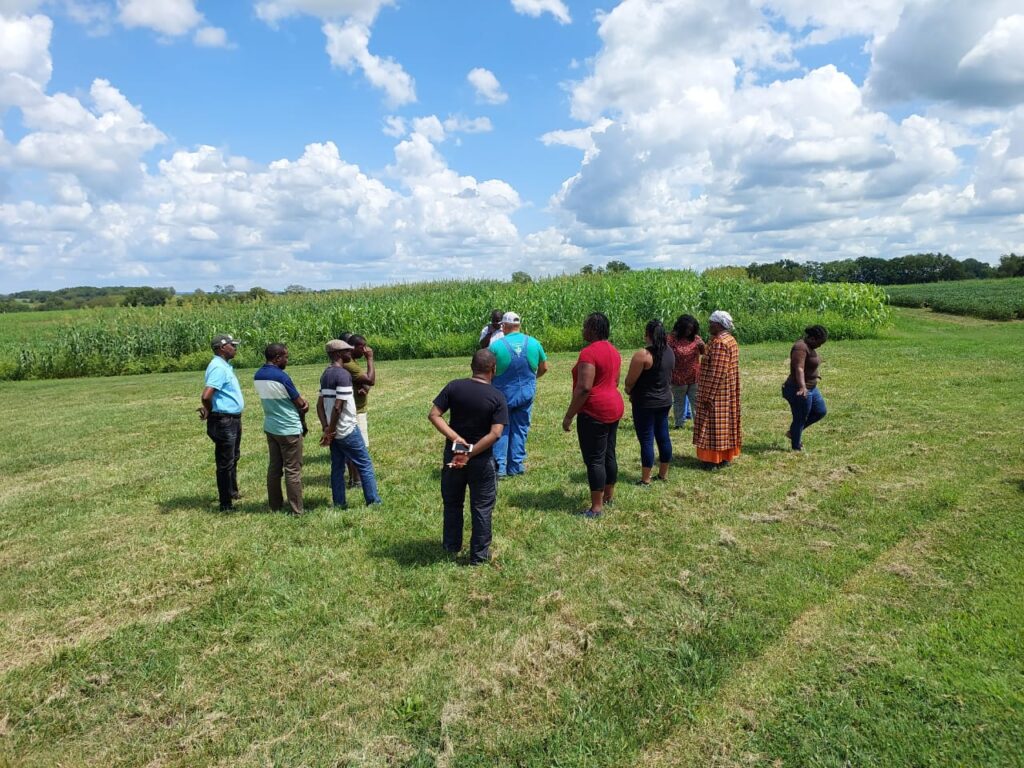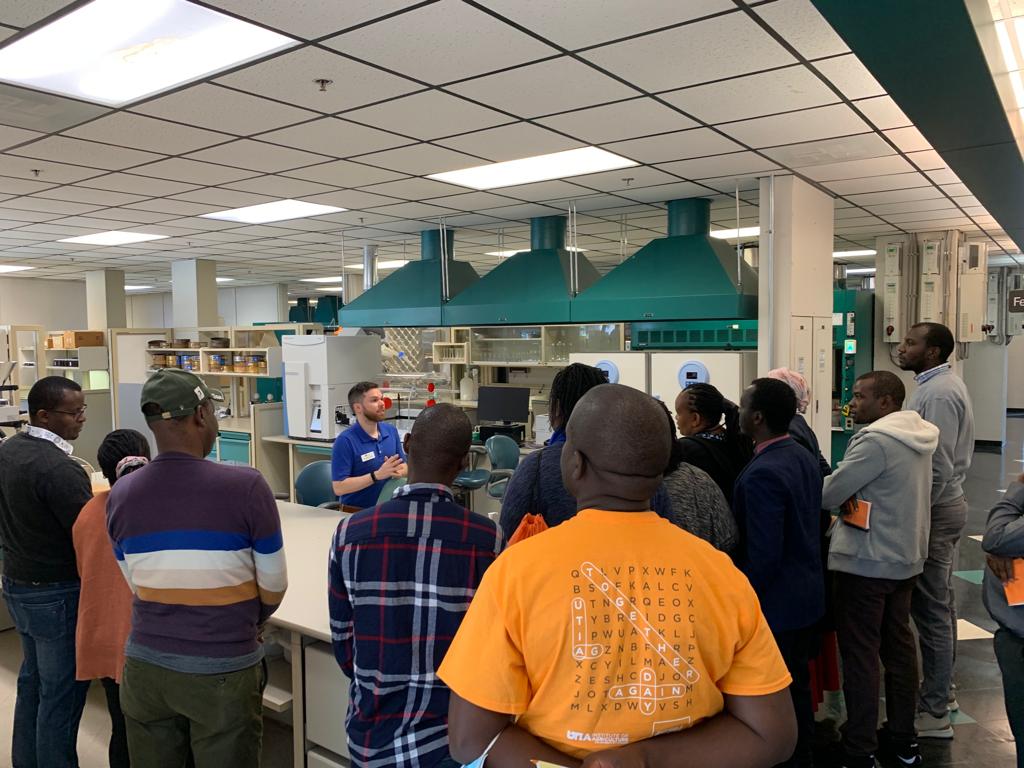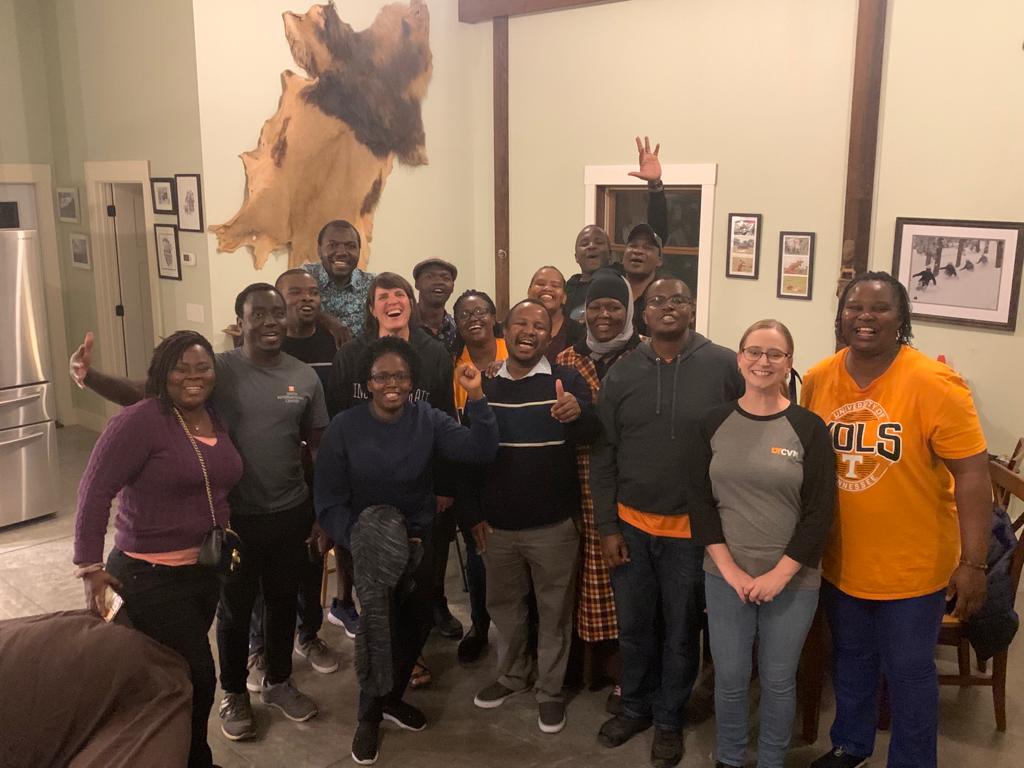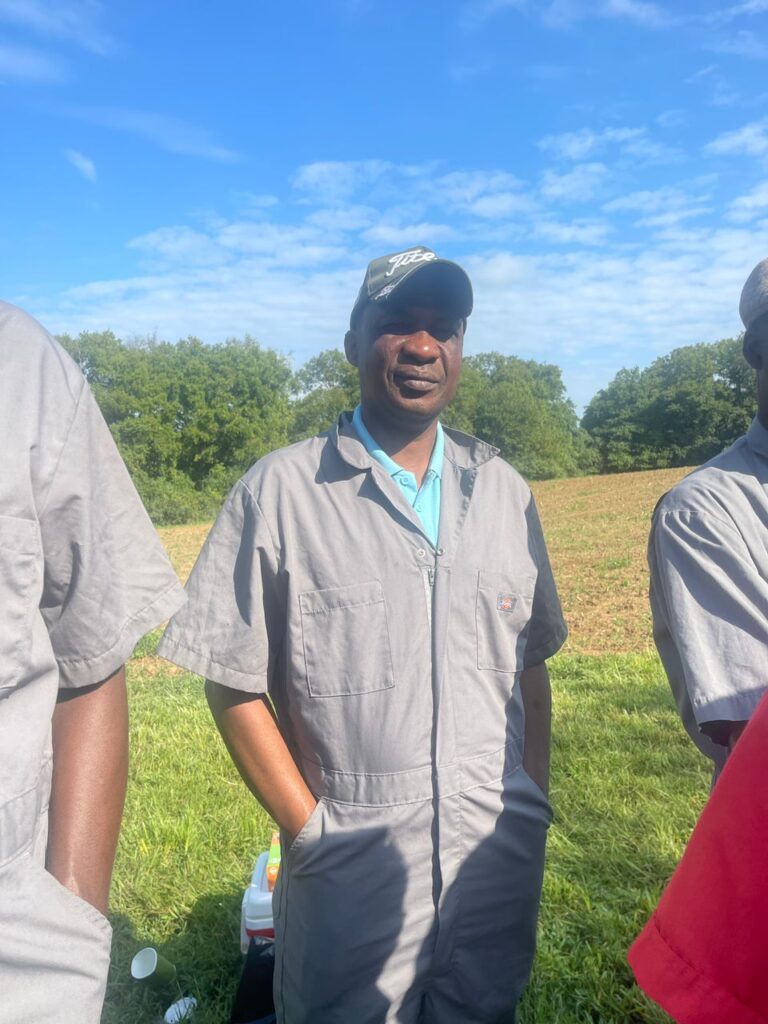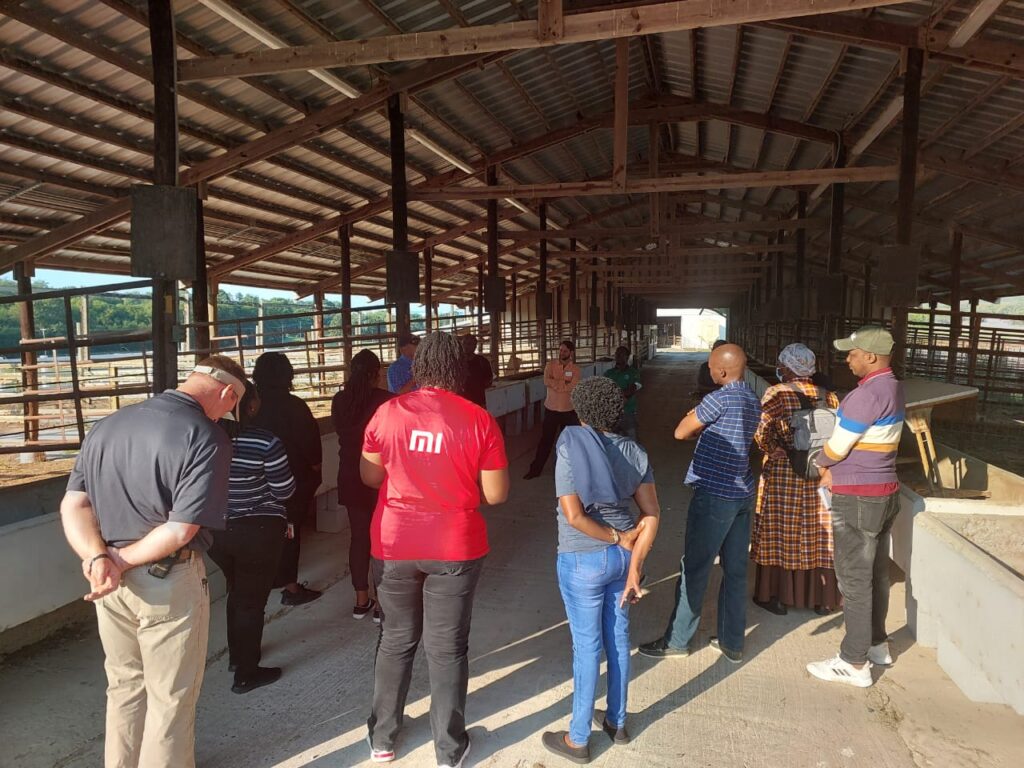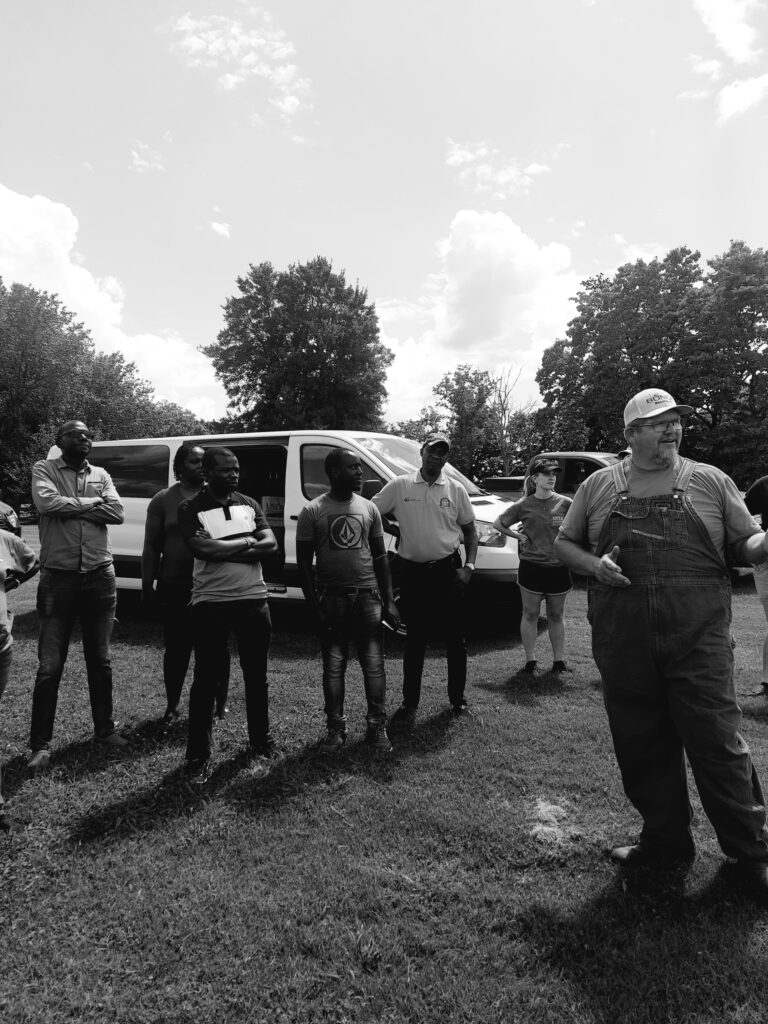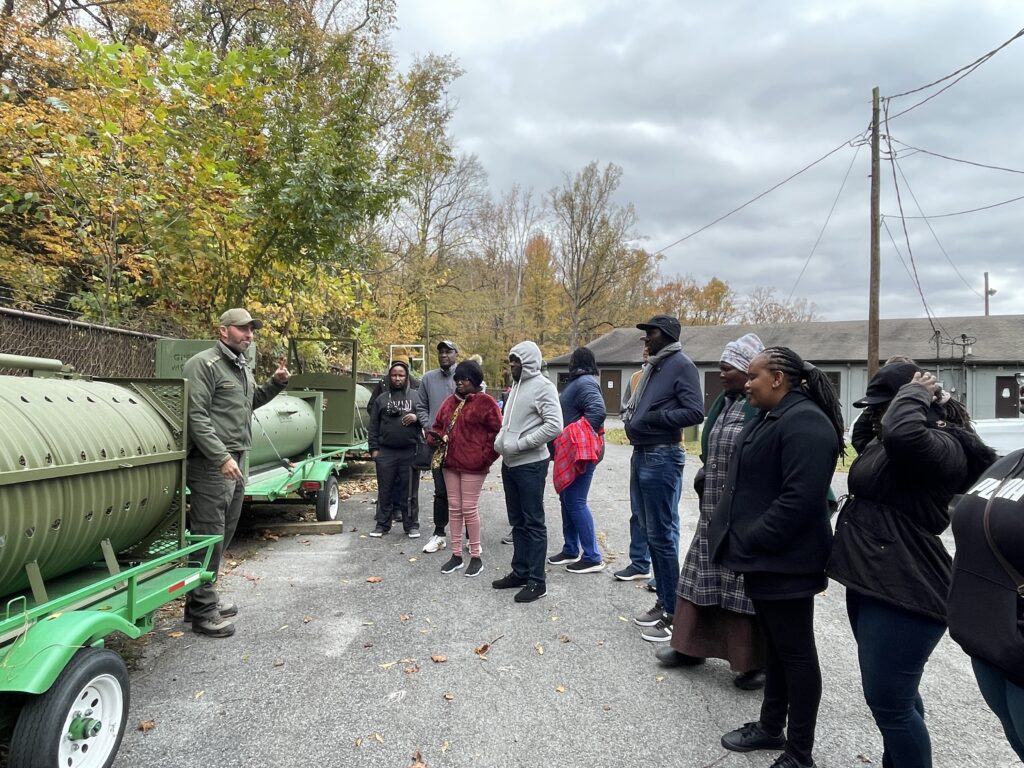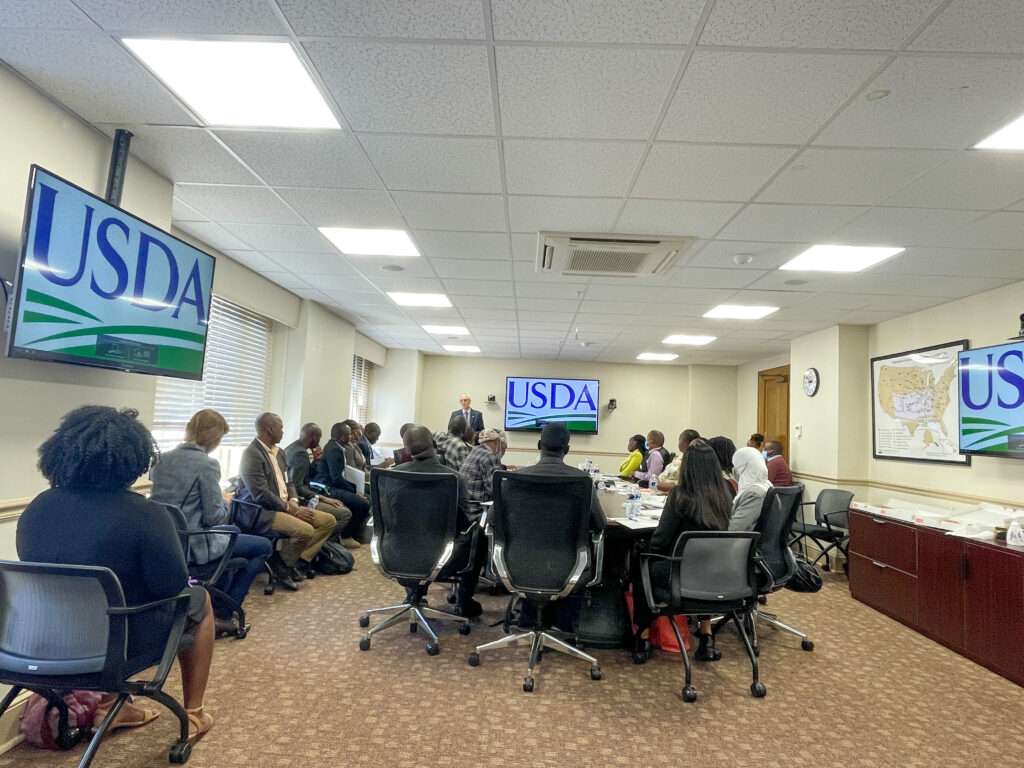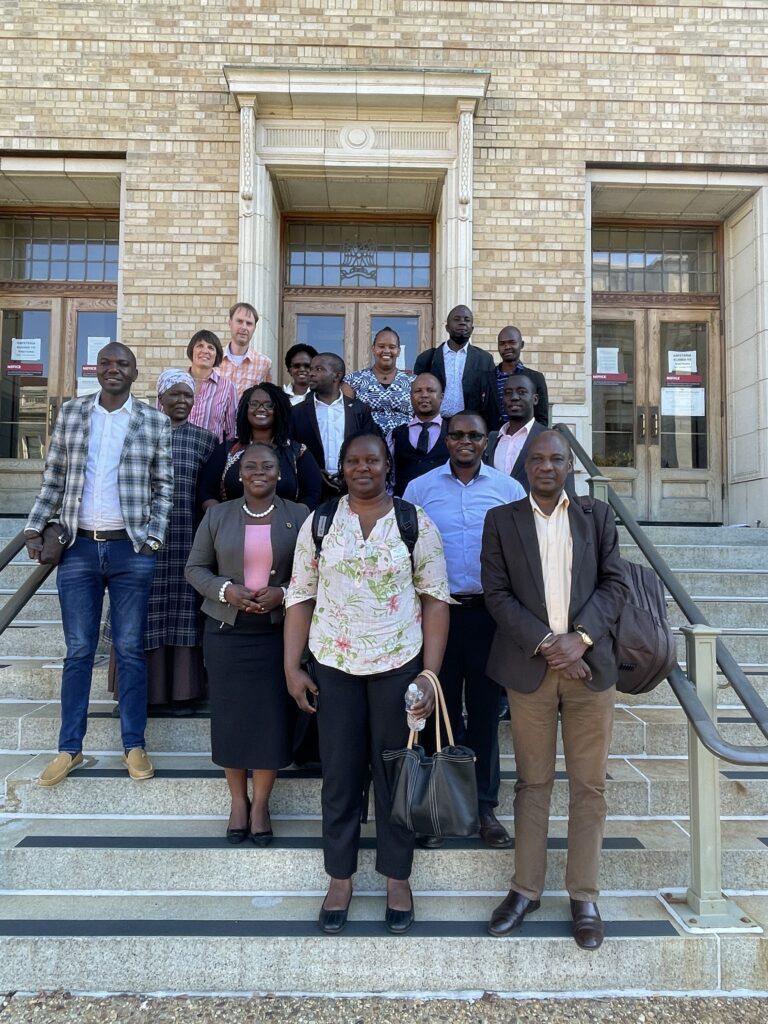
By Brooke Adams
From August to December 2022, the University of Tennessee Institute of Agriculture hosted nine Faculty Exchange Program (FEP) and five Scientific Exchange Program (SEP) fellows from four African countries. These programs are funded through the Foreign Agriculture Service (FAS) at the United States Department of Agriculture (USDA), and they focus on veterinary teacher pedagogy and animal health governance. Marcy Souza, professor and associate dean for outreach and global engagement at UTIA CVM, served as the project lead for both programs. The visiting SEP fellows were all from Kenya, and the FEP fellows were from Ghana, Kenya, Tanzania, and Uganda. They were matched with faculty members from three different UT colleges for mentorship for the duration of their programs. Learn more about each fellow and their mentor throughout this #FacultyExchangeFriday blog series.
Mohamed Ally is a lecturer at the Sokoine University of Agriculture in Tanzania. In this position, he teaches undergraduates and postgraduate students, supervises practical field training for undergrads, and conducts extension outreach that focuses on advising farmers on disease prevention. Read more about his experience as an FEP fellow below!
Q: What interested you about this program?
Some of my colleagues had participated in this program before the Covid pandemic, and I had become interested in participating after hearing about the experiences they had. During that same time period, I was tasked with reviewing course syllabi. I had never done this before, and I realized I wasn’t sure how to approach it. My colleagues had learned how to review course syllabi through participating in the FEP program, so I realized it might be a good opportunity to help strengthen my skills as a teacher.
Q: What were some highlights of the program for you?
I have had many highlights while in the program because everything in it has been beneficial for me and my colleagues. I really liked learning about syllabus development and how to create an effective and helpful outline of the courses we teach. I thoroughly enjoyed learning how to incorporate ethics into institutional research and how that can impact our students personally and professionally. I was also able to learn how to implement multiple choice questions into the curriculum to evaluate students and their progression.
Another highlight during this program was being able to see the coordination between the local, county, state, and federal government when it comes to disease reporting and prevention. It was very interesting to me how involved the USDA and other agencies are in the disease prevention and reporting process.
Q: What are you next steps following your completion of this fellowship?
I would like to help increase the disease tracking coordination with the veterinarian council and my university to help prevent disease outbreaks. From there, the Principal can discuss and help implement better tracking coordination with Ministry officials. I also plan to review syllabi for physiology courses with the knowledge I have gained throughout this program.
Additionally, I plan to introduce a journal club at the college to help faculty and postgraduate students learn how to carry out analysis of articles. I will implement the new teaching knowledge and skills I have learned into my courses and teaching, as well as reorganizing the way we do teacher and course evaluations at the end of the semesters.
Q: Why do you view exchange programs like this one as being important?
I think that this program and similar ones are very beneficial to improve teaching skills along with creating collaborations between different universities for research and publications. My university has less resources, so having these collaborations with UTIA can improve the research being done and elevate publications.
Q: What was your favorite part about being at UT and in Knoxville, TN?
I was very excited to come to Tennessee and experience different cultures and geography. I was initially worried about safety within the city, however the people here are so kind, charming, and friendly. I was looking forward to seeing the Tennessee river so I enjoyed that.
Mohamed was mentored by Chika Okafor, an associate professor in the Biomedical and Diagnostic Sciences Department at UTCVM. His research involves improving stewardship of antimicrobial use in food animals and veterinary medicine. Success in this research focus would help combat antimicrobial resistance challenges in animals, humans, and plants, which is a global One Health issue. He is focused on understanding/preventing animal diseases (e.g., bovine anaplasmosis) and pre-harvest food safety issues (colibacillosis, salmonellosis) associated with antibiotic usage.
Q: What interested you in participating in this program?
I was drawn to the program because of its wider reach and opportunity to establish deeper connections with individuals who I would not ordinarily meet in my daily professional life at UT. This connection would enable me to share my research and teaching success with peers who are passionate about doing great work to advance global One Health challenges. Through these interactions, I also hope to learn from them.
Q: What were some highlights of the program for you?
One of the highlights is the global relationships that are established through this program. Thanks to this program, I have secured new collaborations in East African countries (Tanzania, Kenya, and Rwanda). During my reciprocal visit to Tanzania, I was enthused to know that my mentee has identified challenges in his institution that he plans to address because of things he learned from the program.
Q: What did you learn from interacting with your mentee?
Through my mentee, I learned about the amazing work currently going on in Tanzania to address antimicrobial stewardship challenges in animals and humans. My interaction with my mentee taught me that so much could be accomplished with little resources, if one does not give up.
Q: What kind of impact do you think these exchange programs have?
These exchange programs provide professional development for mentees and mentors, as well as opportunities for global partnerships. My mentee’s institution has pursued teaching and research optimization efforts owing to the skills he acquired from this program. Mohamed returned from this program to become a leader in addressing institutional needs. Jointly, we have submitted proposals to address global health needs.The opportunity for better globally minded leaders and networks are among the positive impacts of these programs.
